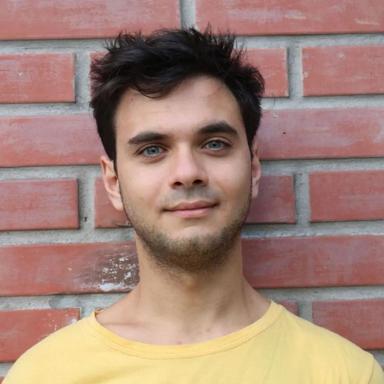On a second turn, the left won the country's elections for the first time in history and promises a volantza in public policies.Gustavo Petro succeeded in becoming the first left president of Colombia. He succeeded him after placing himself closely in the ballotage with 50.44% before the outsider Rodolfo Hernández, the surprise of these elections, which reached 47.31% and accepted his defeat quickly: " I wish Dr. Gustavo Petro to know how to direct the country, to be faithful to his speech against corruption and that he does not defraud those who trusted him”, stated in a video that shared on Twitter.
The winning coalition, “Historical Pact” won 11,281.002 votes and converted its leader Petro into the most voted mandator in the country’s history. As for the first round, where it was imposed with 40% with 10.580.399, it was able to add almost three million more votes.
“Here what comes is a real change, a real change. In this sense, we compromise existence, life itself. We are not going to betray this electorate, who shouted to the country, to history, from today Colombia changes, Colombia is another"He said the new president in his speech after the victory.
Besides, He noted that his axes of government will be peace, social justice and environmental justice and tried to overthrow ghosts that surround their economic ideas: " We will develop capitalism in Colombia. Not because we love him, but because first we must overcome premodernity in Colombia, feudalism, new slavery”." Its political project is ambitious: it proposes an industry development with environmental care as a guide and supported by a comprehensive fiscal reform to balance the deficit at the same time. He also intends to respect the rights of the original communities", supported Luis Ángel Pérez, polytologist and Operations Coordinator at the Center for Political Analysis and Training (CAEP).
Gustavo Petro is a 62-year-old economist, even weeks ago Senator, who was mayor of Bogotá and participated in the guerrilla group of the M-19 until the 1990s.He was presented as a presidential candidate in three opportunities, seemingly respecting the mystic that contains this number. In 2010 and 2018, where he could not with uribism. In this opportunity, and under the wing of the Historical Pact, he managed to group a large number of movements, which strengthened the electoral proposal and extended the flow of votes."The historic covenant means unity. We meet in the essentials and We want to become a world power of life”. Thus summarizes the winning political space the elected representative to the House by Antioch, Alejandro Toro. “This means putting in the center the environment, education and the older adult. We will also apply a two-year economic shock plan to alleviate the hunger that left pandemic and the governments that forgot the people.”
The other phenomenon of these elections is the arrival of the lawyer France Márquez to the vice president, for she is only forty years old and is loaded with rupturist symbolisms: she is afrodescendant, feminist, human rights activist, teenage mother, fighter against extractivism, and comes from a working family, where her mother was a midwife and her father, worker and miner. By economic difficulties, he must work as a housekeeper at his age 16.
"After 214 years we got a government of the people, the government of the no ones of Colombia", He stated Márquez in his first speech as elected vice president. "We go for the rights of the LGBTQ+ diverse community. We go for the rights of our mother land, the big house. Taking care of biodiversity. Let us together eradicate structural racism. I am the first afrodescendant woman in Colombia. I am your vice president"He added.
According to Luis Ángel Pérez, "França Márquez represents the struggles of the Afro-Columbians, of the people of the Pacific, of those who are not taken into account. They all identify with their environmental, feminist and anti-racist struggle. The campaign was full of racist speeches against her. This is a country that does not question its own racism".
In this tumultuous context of Latin America, where certainties do not abound, the concrete is that the Colombian society decided to discover new horizons, but it remains to see the fortress that will have the Historical Pact to transform the Colombian reality and also its contribution to the consolidation of a new regional progressive block.
Julio Burdman, Doctor of Political Science and international analyst, doubts about the consolidation of the new president in the international context. "Petro has conditions to become a leader with regional impact, but not the leader of the Latin American progressive, but this will depend on his personal skills and not for presiding over Colombia, with little influence in the region. In addition, it will have many domestic problems that solve”.
"This new wave of progressive governments is weaker than the previous one, the specific weight of the countries involved and the limitations generated by the strategic alliances with the US. Argentina, Brazil and Venezuela, in times of UNASUR and MERCOSUL progressives, had the ability to make international alliances of another kind. For example, Brazil integrates the BRICS"He added.
To draw some conclusions, the post-pandemic tendency unfavorable to the officialisms in America with the victories of Joe Biden (USA), Pedro Castillo (Peru), Gabriel Boric (Chile), Guillermo Lasso (Equador), Xiomara Castro (Honduras), Rodrigo Chaves (Costa Rica) and now also that of Gustavo Petro. Five of these seven governments have left tints. The next stop is the giant of the continent, Brazil, where Lula Da Silva will try to return to power and, why not, consolidate this continental trend.


Comments